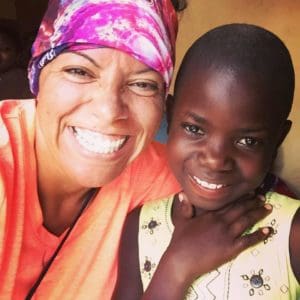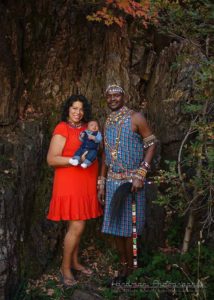Birth In African Cultures
By: Marilyn Sorensen
This year marks my third year living in Narok, Kenya, Africa. A place that has become the source of many awakenings for me. Including immersing myself back into the wonderful world of birth.
Last year at this exact time, I had the opportunity to go to a local hospital with a midwife friend of mine, who was visiting from Idaho for a few weeks. This gave me the chance to witness first hand what is happening with Kenyan moms during their birthing times.
My experience of “Do Not Fix What Isn’t’ Broken” gave me great pause. For years as a doula I was a fierce supporter of women being the best authority on their body, their baby, their family. No matter where I am in the world, my path seems to always lead me to projects that continue to support that belief.
One of the things I have noticed in African nations is their desire to evolve to the Western Way. Unfortunately, the Western Way is not necessarily the right way when it comes to birth.
Inductions, keeping moms sedentary in beds, interventions and c-sections are the way of the Western World—practices that African nations believe must be the way to do things, since the U.S. is such a successful, highly developed country.
Oh please, don’t fix what isn’t broken. For centuries African women have been gathering together to support their sisters, daughters, and friends during their pregnancy and especially during and after their births.
The tribal and village mentality is a large part of what made me fall in love with the culture of Kenya. It is what I now believe is missing in the Western culture when it comes to births. Sure we are great at planning baby showers, giving our opinion on how to decorate the nursery, and what items to add to your baby registry. Yet, our village, our tribe, our sisterhood is often missing.
When women in Kenya are giving birth it is usually with a female midwife or a female gynecologist. These days mostly in hospitals. The government has incentive programs to encourage women to travel to hospitals for birth. Programs that also seem to encourage c-sections. Of course we are always grateful for the medical procedures, when they are truly needed. Yet having options for births outside of a hospital setting are also just as important.
The traditional Maasai midwives in the county of Narok, where I live, are increasingly vilified. The younger generations are told they are not safe, they are not educated, it is too risky to give birth with them, “your baby could die with them!”
There are 43 tribes in Kenya. The Maasai tribe is one of the most remote tribes left on the planet. They practice their traditions on a daily basis, thus capturing the curiosity of people around the world, who come to meet them, learn from them and of course photograph them.
While my friend Kimberly Palmer was visiting, I had the honor and privilege of gathering many Maasai midwives and interviewing them. I had a sneaking suspicion these highly qualified women were experiencing the witch hunts American midwives had so many years ago.
We asked them (with the assistance of a translator) what they did if a mama was bleeding too much, if a baby arrived and wasn’t breathing, how they took care of umbilical cords, how they were compensated for attending births, how far they had to travel to get to a mother in her birthing time, and hours more questions that came to mind.
Yes, some of those old wives tales you have heard are true. Pinch a piece of placenta off and put in the mother’s cheek to stop bleeding. These strong women often walk, 8, 10 or more miles to get to a birthing mama. If a baby wasn’t breathing they may dunk it quickly in a basin of water to shock them in to breathing. They can be compensated with livestock, hand beaded jewelry, clothing or cash.
Most importantly, they have decades of hands on experience, catching hundreds of babies. Wisdom passed on to them by centuries of midwives that came before them.
Of course the birthing mama and their new babe are also being attended to by their sisters, mothers, aunties and neighbors. Her doulas. All women here serve every woman here.

In the Maasai tribe, a goat, sheep or cow would be prepared to celebrate the new member of the family. The meat would be roasted. The new mother would have fresh blood from the animal consumed and fat given to her to prepare her for lactation.
Now this may seem very foreign for you in your culture. However, the intention is the same—to take care of you.
They want to make sure you are healthy and “fattening up” to breast feed. All the ladies in your life come clean your house, cook for you, clean your laundry, bring money as a gift for the baby, just generally make sure you are focused on healing and your new baby for a few months.
They sit with you and visit you so that you do not leave the house and take out your new baby for many weeks. It is a true Baby Moon time for you and your new family to enjoy this sacred bonding time.
Traditions that I have often wondered if our busy To-Do List, constant updating on social media, and “Keeping Up with the Jones” lifestyle have lost along the way.
As a new mama, who comes from Utah and lives in Kenya, I can assure you of one thing. Moms that live in a dung or mud hut near the lions, elephants and leopards, want the exact same things as moms who live in a 4500 square foot stucco homes in West Jordan, Utah.
Healthy, happy babies, who get a great education, get good jobs, become contributing members of society, who have a life they love and come home to visit their moms after they move away.
About Marilyn:


So beautiful! Women in the western world have been so conditioned to think we have to do it all on our own. We need our tribes!!!
Hello, I am a doula and I am in transition. Soon I will be making a move and Nairobi is on my short list. I’d love to get in touch with both Lindsay & Marilyn to talk about your experience in Kenya. I would greatly appreciate having a chat with these two ladies. Thank you.
I am a new Doula and would like to come to Africa please send me some information or leave me in the right direction thank you